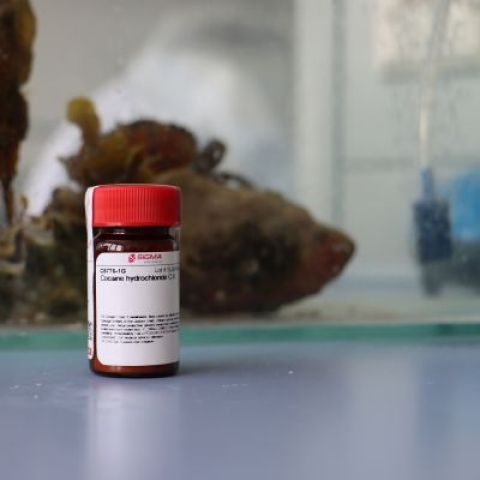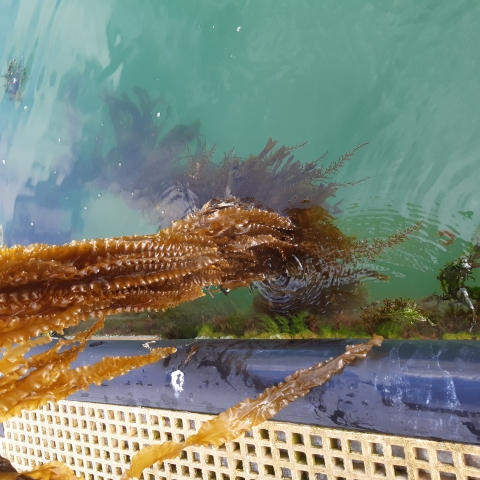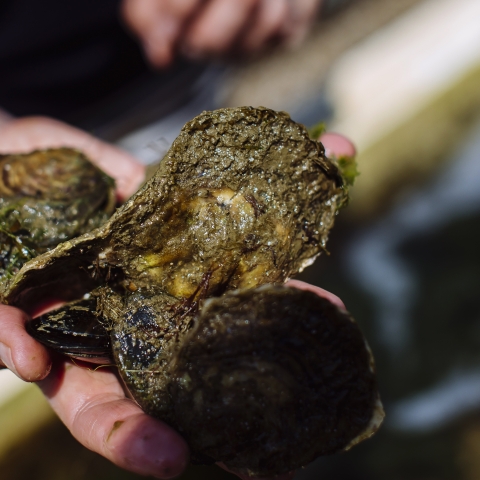

The national TV news programme has brought the big red sofa to the Institute of Marine Sciences in Eastney this week
5 September 2023
7
The University of Portsmouth is excited to announce that it has hosted the BBC Breakfast show, for a special outside broadcast.
On Tuesday morning (5 September), homes across the UK saw the big red sofa on the roof of the University’s Institute of Marine Sciences (IMS) in Eastney, Portsmouth.
The special programme focused on water quality in our seas and rivers, with expert speakers from the IMS, including Professor Alex Ford and Professor Joanne Preston, as well as campaigners, local residents, and celebrities.
It follows a BBC investigation, which suggests three major water companies illegally discharged sewage hundreds of times last year on days when it was not raining.
The IMS is a marine station with an international reputation for providing high quality marine research and teaching. It's been at the forefront of marine biology for more than 70 years.
It is located within metres of the sea on the shore of Langstone Harbour and provides access to the varied marine ecosystems of the Solent European Marine Site.
Professor Ford’s previous research at the IMS includes an ongoing study looking at water quality in and around Chichester and Langstone harbours that has revealed high levels of potentially harmful chemicals.
Another study has revealed tiny quantities of antidepressants in water can affect wildlife, such as crustaceans and molluscs. It also found drugs will affect the behaviour and biological make-up of these creatures, including changing colour, growth and reproduction.
Professor Preston’s research is focused on the restoration of coastal habitats, particularly oyster reefs, seagrass and saltmarsh. In 2017, she founded the UK and Ireland Native Oyster Restoration Network in collaboration with the Zoological Society of London.
Professor Preston also provides scientific leadership for the Solent Oyster Restoration Project, helped set up the country’s first oyster restoration hatchery in the Solent on the south coast of England, and leads the scientific monitoring for the Solent Seascape Project.
Raising awareness of how we are impacting nature on our doorstep is a vital step towards solving both the climate and biodiversity crises.
Professor Jo Preston, School of Biological Sciences
Commenting on the BBC Breakfast show, Professor Preston, from the University’s School of Biological Sciences, said: “Raising awareness of how we are impacting nature on our doorstep is a vital step towards solving both the climate and biodiversity crises.
“We are working to restore the lost and degraded marine habitats in the Solent that provide us with resilience against climate change, improve our water quality and support fish stocks and other amazing marine life. However, we need to meet nature half-way - reducing the pollution entering our coastal waters is a large part of the solution to enable nature and humans to thrive together.”
The IMS is a unique location for staff and students to study marine coastal habitats. This includes looking at how humans impact marine ecosystems and how scientists can best restore and safeguard our environment for future generations.

BBC Breakfast weather presenter Carol Kirkwood with Marc Martin, Robyn Montague and Professor Jo Preston from the University of Portsmouth outside the Institute of Marine Sciences
We are delighted as a University to be not only leading the evidence base into the impacts but also the solutions to these national and international issues.
Professor Alex Ford, School of Biological Sciences
“Water quality, and specifically the impacts of sewage discharges on our coasts and rivers, has never been higher in the public consciousness and is only likely to become more topical in the lead up to the general election”, added Professor Ford.
“We are delighted as a University to be not only leading the evidence base into the impacts but also the solutions to these national and international issues.”
Professor Graham Galbraith, Vice-Chancellor of the University of Portsmouth, said: “We’re very pleased to welcome the BBC Breakfast team to the University to showcase our incredible research and facilities of the IMS.
“As 77 percent of our research impact was rated as either world-leading or internationally excellent in REF 2021, having a national broadcaster chose us to host their flagship breakfast programme here in Portsmouth cements our position as a world-leading institution for research and innovation.”
The show is available to watch back on BBC iPlayer here: https://www.bbc.co.uk/bbcone
If you watched our researchers discussing water quality on BBC Breakfast and feel inspired to act, you can donate to The Environment Fund supporting research at the Institute of Marine Sciences, monitoring and testing marine environments and ecosystems https://bit.ly/EnvironmentFund
Nature's leading role in cleaning up our waters | Life Solved
More like this...
More than 50 chemicals discovered in water off Hampshire and West Sussex coasts
9 June 2023
8

Scientists farm seaweed in the Solent to test water quality and commercial benefits
15 June 2023
5

Solent Seascape Project takes huge step forward to bring oysters back to the River Hamble
13 April 2023
4 minutes

